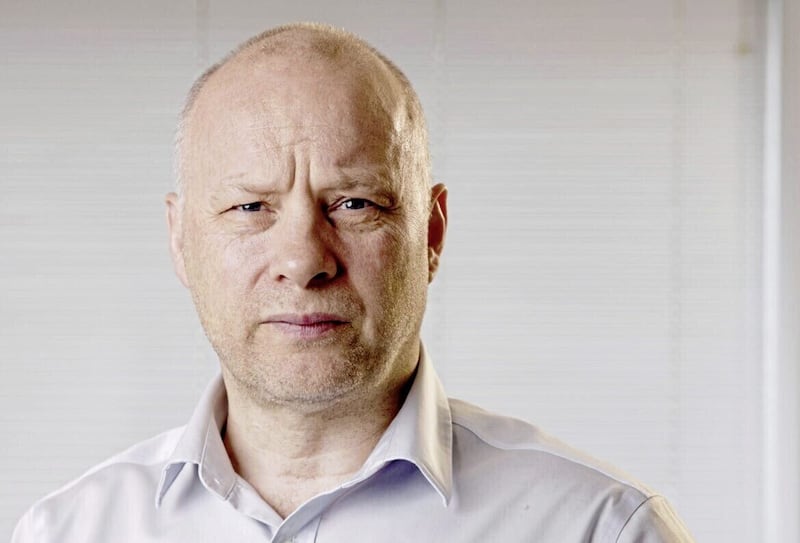We’re into the second month of having a Northern Ireland Executive back up and running. And one of the key areas of focus is getting blockages that have built up over the past two years unclogged.
A key part of this will be getting a budget, which is due in April, agreed, passed and implemented.
Unfortunately, it will only be for one year, as the dream of multi-year budgets, which is ultimately essential for NI to be put on a more sustainable fiscal path, remains just that.
The much celebrated £3.3 billion package came with strings attached.
After a budget is delivered, the Executive has to publish a plan to deliver sustainable public finances and services by May this year.
Part of this is the need to raise £113 million in revenue in the next 12 months.
The Executive could have done this in one fell swoop by including a 15% rise in regional rates or through a variety of measures ranging from introducing domestic water charges, increasing university tuition fees and so on.
But like a bat out of hell, politicians quickly came out to say that whilst they would do anything for that £3.3bn, they won’t do that (i.e. the unpopular policies named above).
The First Minister has ruled out introducing water charges. The Economy Minister will not increase tuition fees.
Meanwhile, the Finance Minister is set to raise the regional rate by just 4%, as opposed to the 15% that would have plugged the £113m hole.
For context, back in the noughties, Peter Hain when he was secretary of state, increased the regional rate by 20 percent, and not many people actually complained.
Finally, the settlement includes a condition that the Executive is expected to publish a “comprehensive and costed long-term strategic infrastructure plan”.
Given the spiralling estimated costs linked to Casement Park, this will be no easy task.
Given all of this, it looks like the additional revenue won’t be raised, and this will mean the Executive isn’t meeting the terms of the deal. And what happens next remains to be seen.
The rationale for not raising this additional revenue is that households can’t bear the financial pressure of additional costs such as domestic water charging. But the reality is that not raising the revenue will impact on households by imposing additional costs indirectly.

One of the key areas I’m thinking of here is housing. We are currently experiencing a supply crisis in the rental and owner-occupier sectors which shows no signs of letting up.
Despite buoyant demand, last year Northern Ireland’s house builders completed just 5,400 units.
That represents the fewest number of housing completions since 1959. The target for what they should be building is around 9,500 per year.
Housebuilders have been hit with a double-whammy. On the one hand, they have had the soaring cost of building materials and by extension, the cost of a new home going up. On the other hand, their customers have been hit by the cost-of-living crisis and higher interest rates.
The reality is that the cost of a new home and the customers’ ability to buy it have been going in opposite directions. This means housebuilders have scaled back on their building intentions due to these market factors that are outside of their control.
There is also a longer-term problem in the deepening supply crisis. This one has been under Northern Ireland’s control but has been neglected and needs urgent attention. This is our inadequate infrastructure, mainly water infrastructure.
This problem means that there are a range of sites around Northern Ireland that can’t be built on because they can’t get connected to sewerage. Water infrastructure, or the lack of it, is the number one impediment to the development of any tenure, including social housing, and is only becoming a bigger problem.
According to a recent survey by the Construction Employers’ Federation (CEF), almost £1bn worth of investment in housing is currently stalled due to water infrastructure issues.
This equates to 8,450 homes. If the wider social housing sector is included, the total of stalled housing units would be some 19,000, which is huge for a market the size of Northern Ireland, and looks set to get worse.
This lack of supply is pushing up house prices and preventing thousands of households from accessing a home. So the NI Executive’s unwillingness to raise revenue through e.g. higher rates is actually leading to bigger mortgage payments and higher rents.
So if they are doing this in order to protect households’ finances, their strategy is counter-productive in the long-run. And this is particularly the case when you consider that they are forgoing the millions more in revenue that an additional 19,000 properties would generate.
Not raising the required revenue will of course also mean not accessing the full £3.3bn, putting more pressure on public spending and investment, which will be felt by society at large.
But, the reality is that even if NI Water gets the funding to deliver the infrastructure to unblock these 19,000 homes, do we have the people power and skills to actually deliver them in an efficient way?
This leads me to agree with the CEF that we need a housing supply strategy to address all of the cross-departmental issues involved.
This needs to be linked to the Economy Minister’s objectives of creating quality jobs.
If we don’t have enough quality homes, how can we expect to retain and attract quality workers?
To do this, we need to be building like it’s 1999, when we were completing almost 10,000 homes each year.

· Richard Ramsey is chief economist at Ulster Bank







